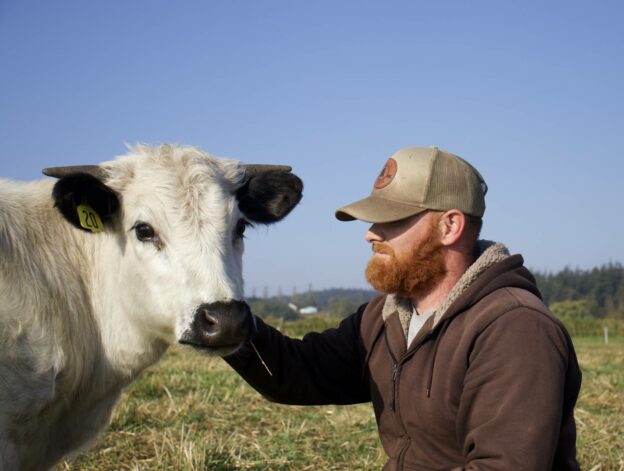The navi Yeshayahu famously invokes a metaphorical bovine and equine at the beginning of his prophecy, which is recited as the haftarah of the parsha,
“An ox knows its owner, donkey its master’s trough. Yisrael does not know; my people does not introspect,” laments the navi (Yeshayahu 1:3).
The animals are reminiscent of two aggados.
Pesikta Rabbasi 14 relates how an ox who was sold by its Jewish owner to a non-Jew refused to plow on Shabbos, causing the buyer to complain. The original owner whispered into the cow’s ear that he was no longer his property and that his new owner had no obligation to keep Shabbos. And so the cow complied.
And in Chullin (7a-b) we read the account of Pinchas ben Yair’s donkey, who refused to eat an innkeeper’s untithed produce until the animal’s owner tithed it.
What created so strong a bond between those animals and their Jewish owners? A hint may lie in the Gemara’s statement that Pinchas ben Yair never benefited from anything that wasn’t entirely his, anything that he hadn’t truly earned and owned. Perhaps that sensitivity to what others owned empowered a special bond between him and what was in fact his.
In any event, such a bond is surely the meaning of Yeshayahu’s lament. The word for “knows,” that he uses – yada – implies the closest of connections. The bond between Hashem and His people, the navi bemoans, has frayed.
In anticipation of Tisha B’Av, the navi’s words in the haftarah are chanted in the lamentation tune of Eicha. The churbanos and other Av tragedies are the tragic outcome of that frayed bond.
But the bond is only frayed, not snapped, and can yet be repaired. After Av will come Elul, whose initials famously stand for – “Ani l’dodi vidodi li” (Shir HaShirim, 6:3) – “I am my beloved’s and my beloved is mine.”
© 2024 Rabbi Avi Shafran
